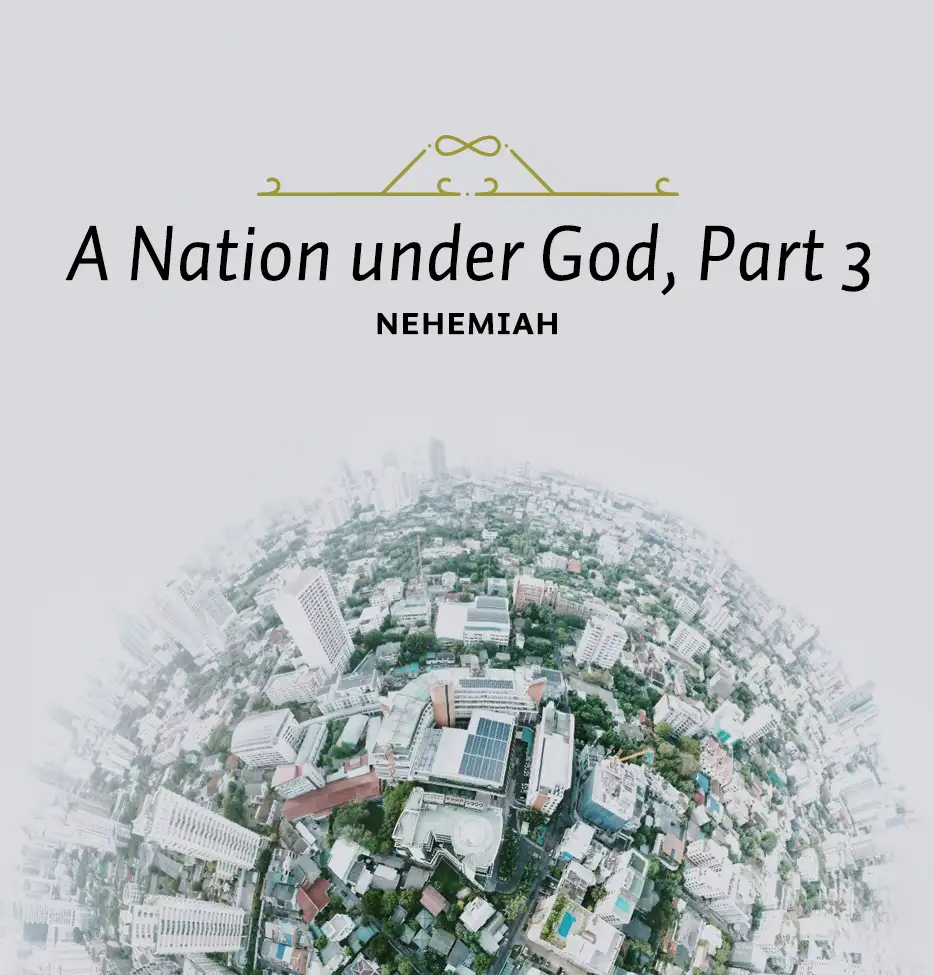5. Dedication of the firstborn (v. 36). The law declared that the firstborn of every household, as well as the firstborn of all the flocks, belonged to the Lord. In practice the people generally redeemed the firstborn by payment of a redemption price, but the practice reminded them that all life is a gift from God and is owed to him. Our lives also belong to God, first because of creation (He made us) and second because of redemption (God bought us for Himself by the blood of Christ). This is why Paul said, “For to me, to live is Christ and to die is gain” (Phil 1:21) and “I have been crucified with Christ and I no longer live, but Christ lives in me” (Gal. 2:20).
6. The tithe (vv. 37-39). I feel about the tithe much the way I feel about the Sabbath, having said often that I see no specific passage in the New Testament that lays the tithe upon Christians as legal obligation. But, as I said before, that is not the whole story. It is true that Christians are not under the specifics of the Old Testament legislation, but where ethical issues are concerned it is always the case that when you pass from the Old Testament to the New the standard goes up rather than down. The Old Testament Jew was to give a straight ten percent of his income to the Lord. It was a simple matter in order to avoid any manipulation of the angles, prevarication or confusion. It was ten percent of everything he received: wages, tips, gifts, an inheritance, etc. And it was for everybody: the young, the old, wives, husbands, students, the rich, the poor. It was the minimum. That much was owed to the Lord. The Jew was to “pay” the tithe. After that, if he had been particularly blessed and wanted to, he could give additional gifts and offerings. What is our principle today? It is higher, as I indicated. It is not ten percent, but one hundred percent. All we are and have is the Lord’s. So our question is not how much we are required to give but rather how much it is proper to keep for ourselves for our maintenance.
Jesus stated the principle in the Sermon on the Mount, saying: “Do not store up for yourselves treasures on earth, where moth and rust destroy, and where thieves break in and steal. But store up for yourselves treasures in heaven, where moth and rust do not destroy, and where thieves do not break in and steal. For where your treasure is, there your heart will be also…. No one can serve two masters…You cannot serve both God and money” (Matt. 6:19-21).
I call this “life-style stewardship,” a pattern of life in which we have first given ourselves to the Lord and then regularly give ourselves to others in his name (cf. 2 Cor. 8:5).
The Christian Church is of a divided mind about covenants. On the one hand, there are those who distrust them, primarily because they rightly distrust any human ability to keep covenants. “Whenever you promise God that you will do something, you are sure to break that promise,” they argue. That is generally true, of course. At the very least, the reservations of these people warn us that none of us should subscribe to a covenant or covenants lightly.
On the other hand, it is impossible to write all formal commitments off. The very act of becoming a Christian is something of a covenant, for when we repent of our sin and turn to Christ in faith as our Savior we also promise to follow Him and serve Him as our Lord. When we are baptized we enter into a covenant. When we join a church we make a covenant. Why should other important spiritual steps be any different? Why should we not frequently determine to change for the better—and covenant to do so?
I suggest that you formally covenant to put God first in everything you do: order your marriage or family according to the Bible’s standards, set aside one day in seven to worship and serve God in the company of other Christians, tithe your income for the Lord’s work—and do whatever else God’s puts it upon your mind to do for Him. And make it a lifetime commitment!






